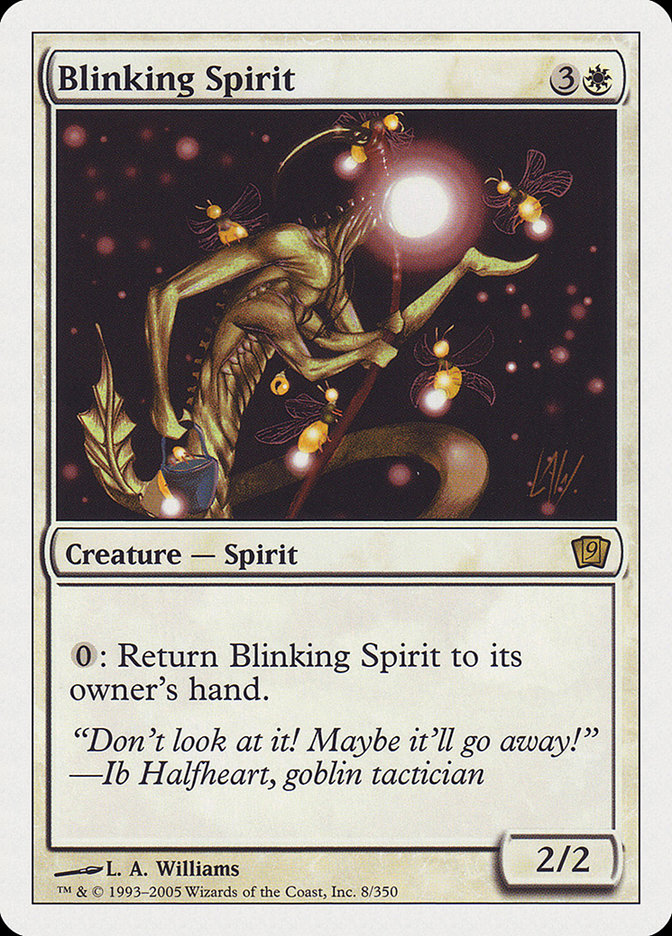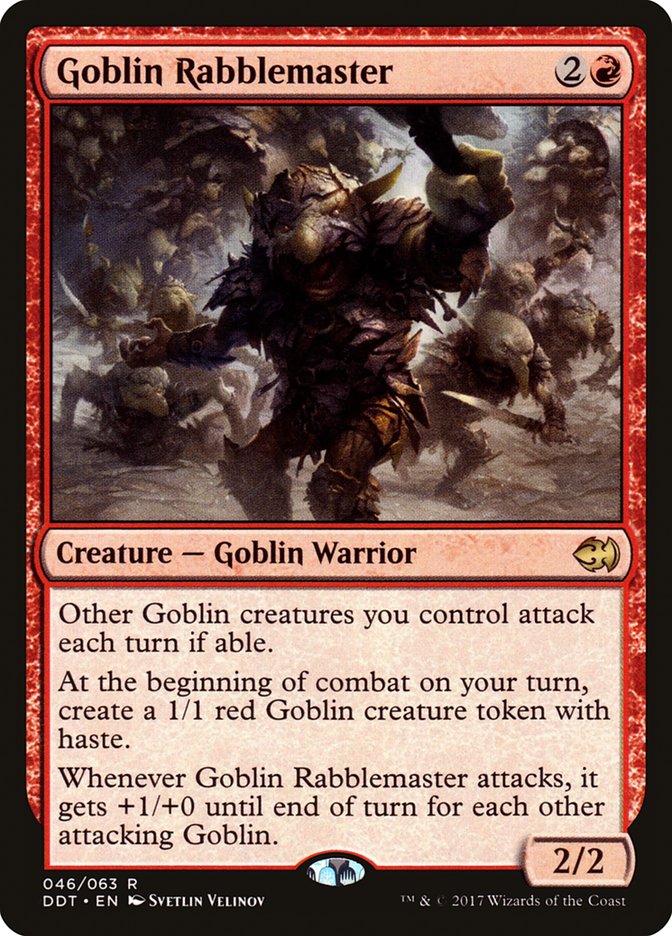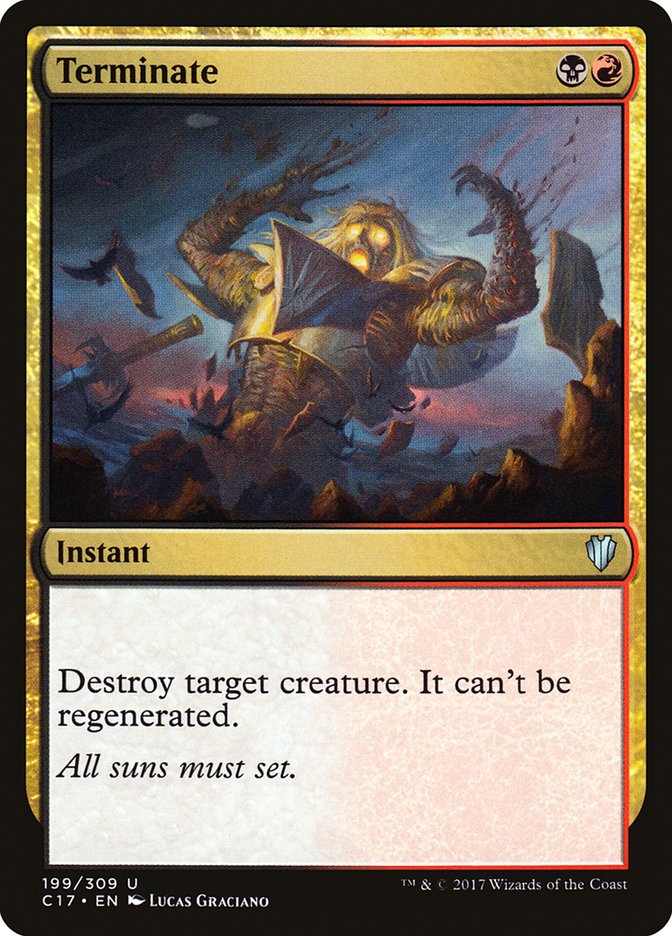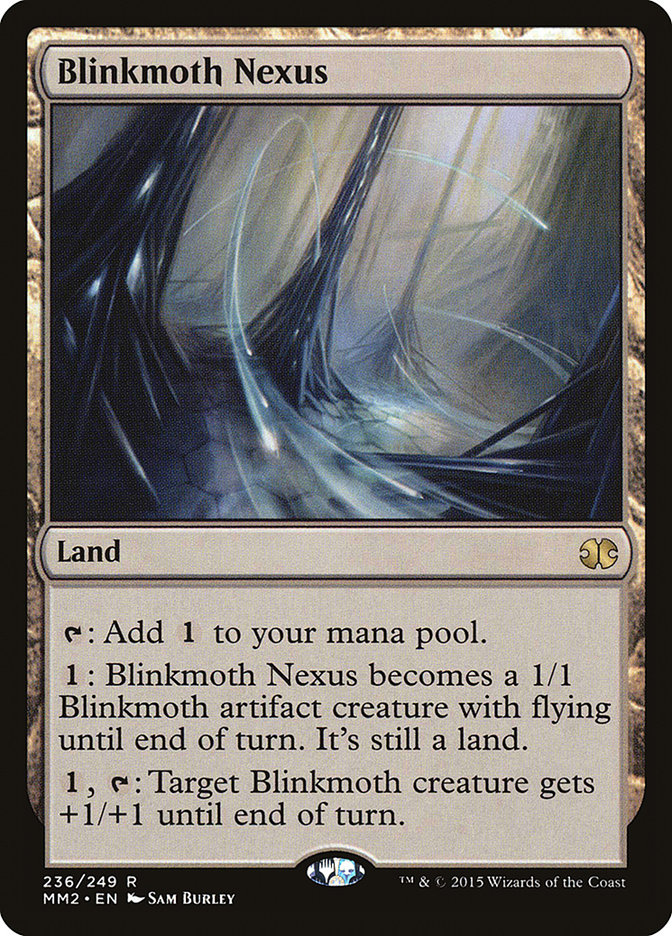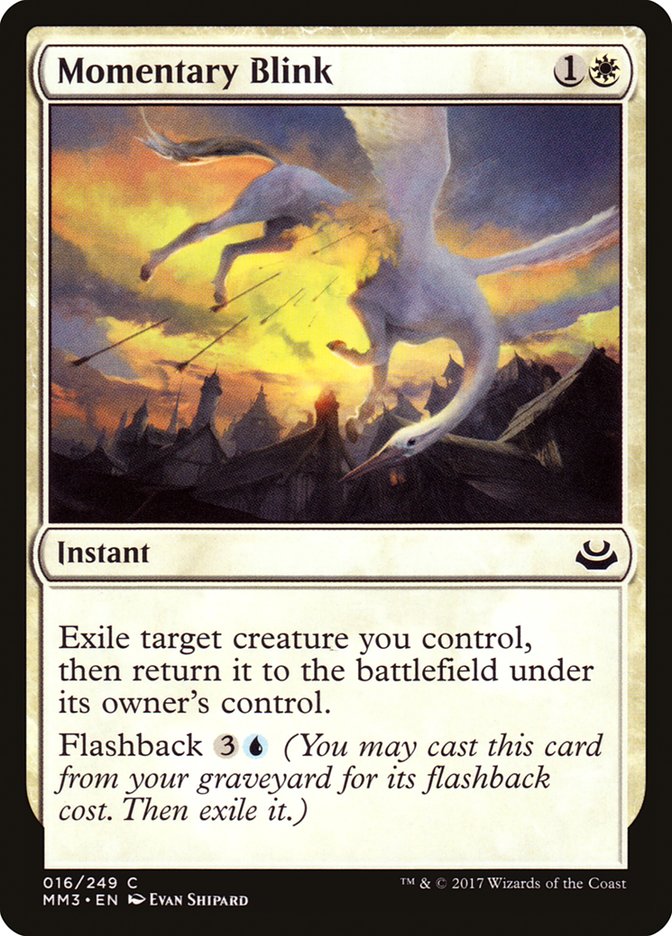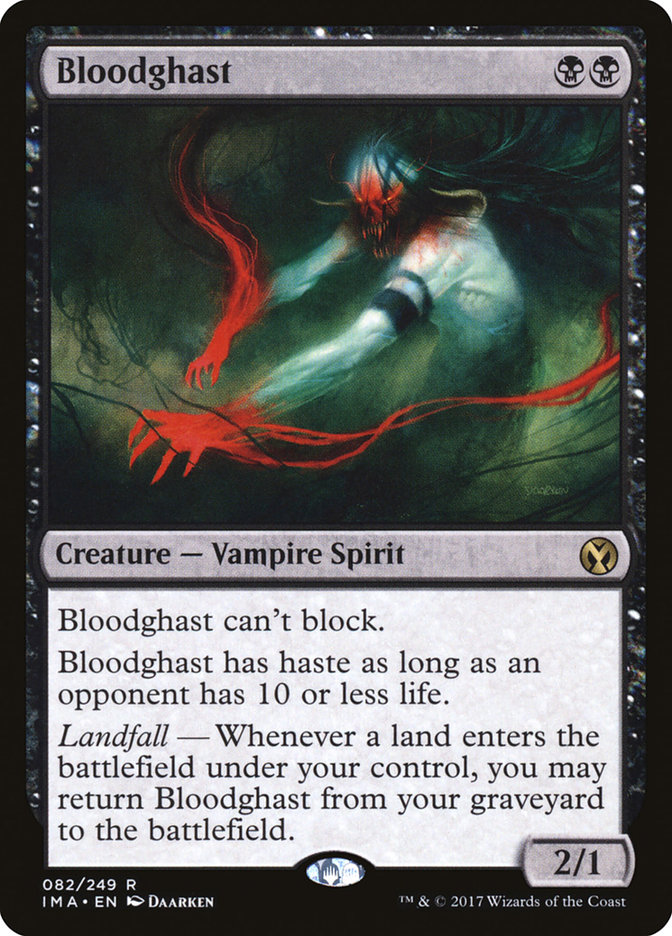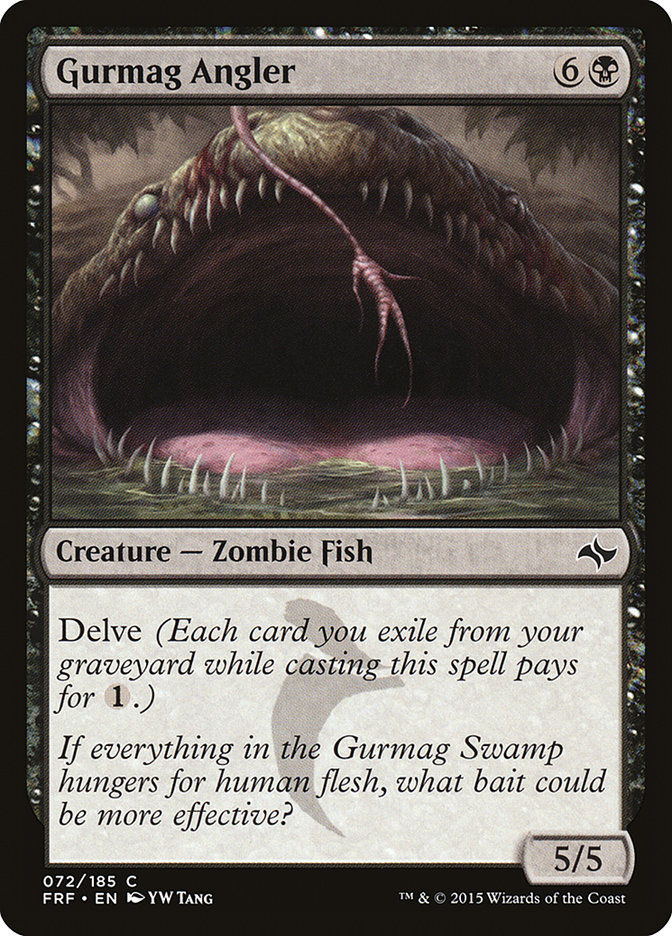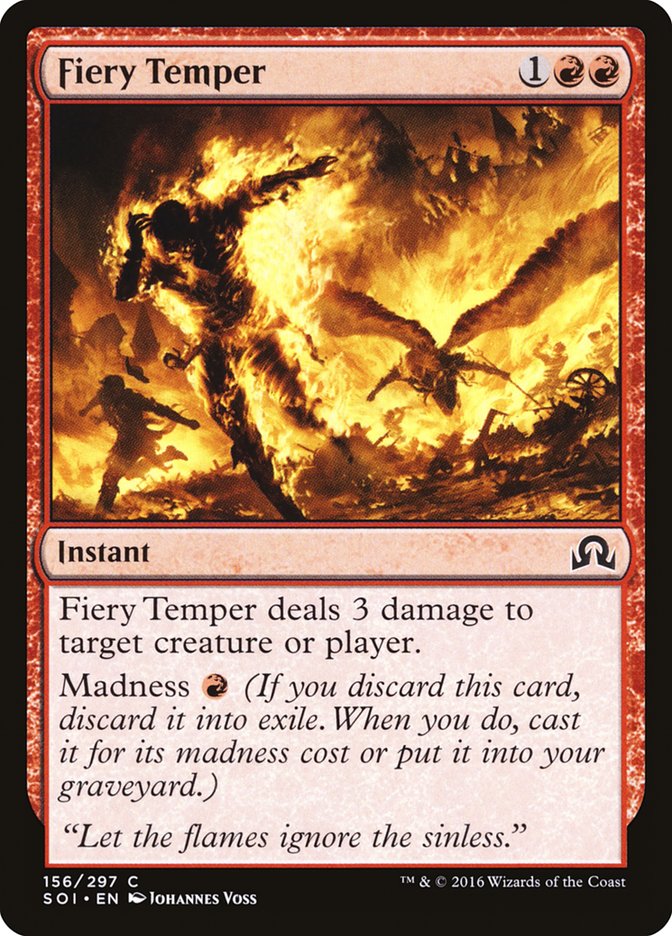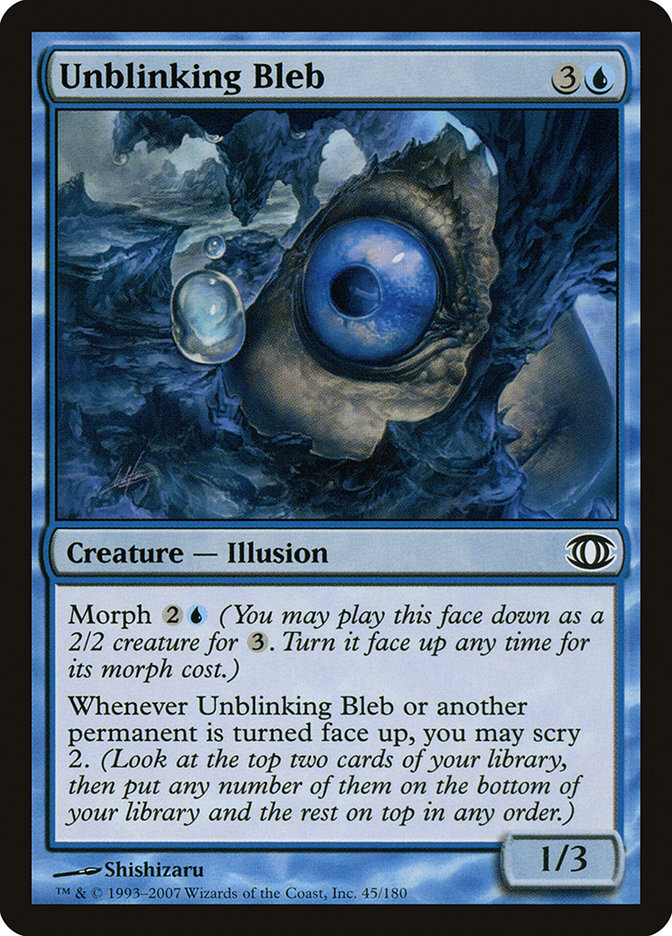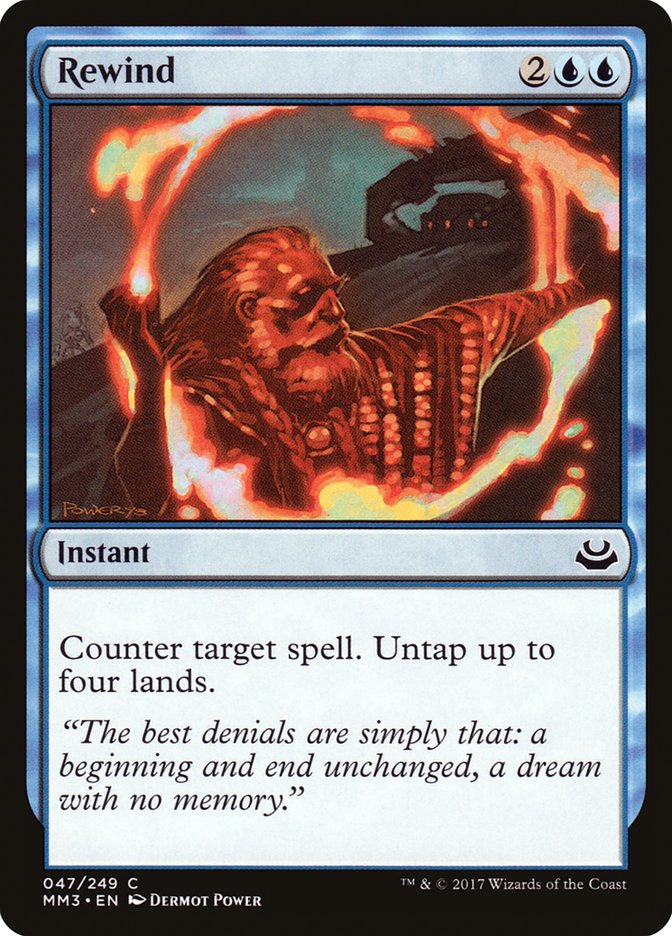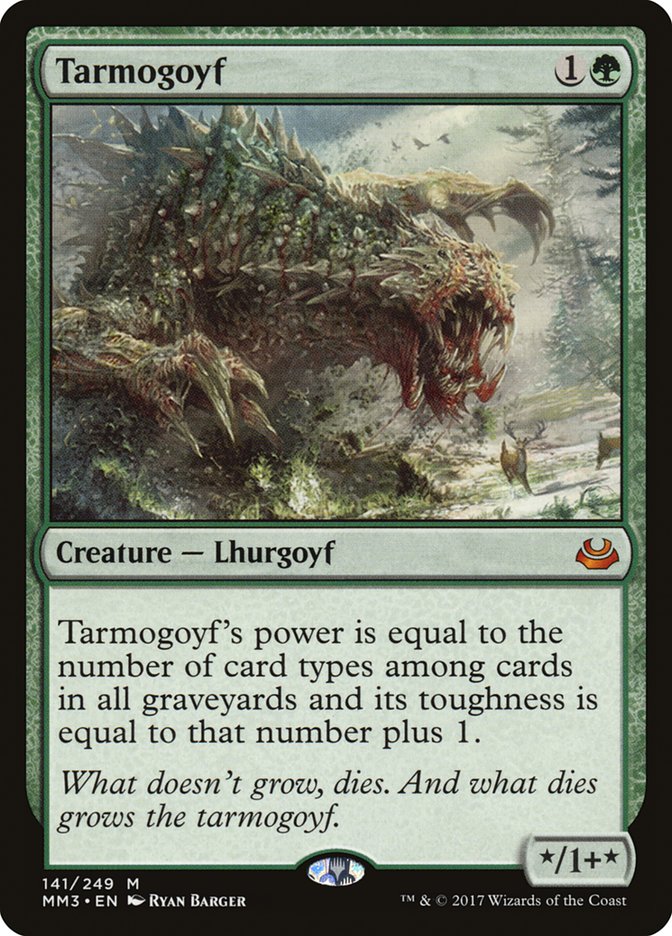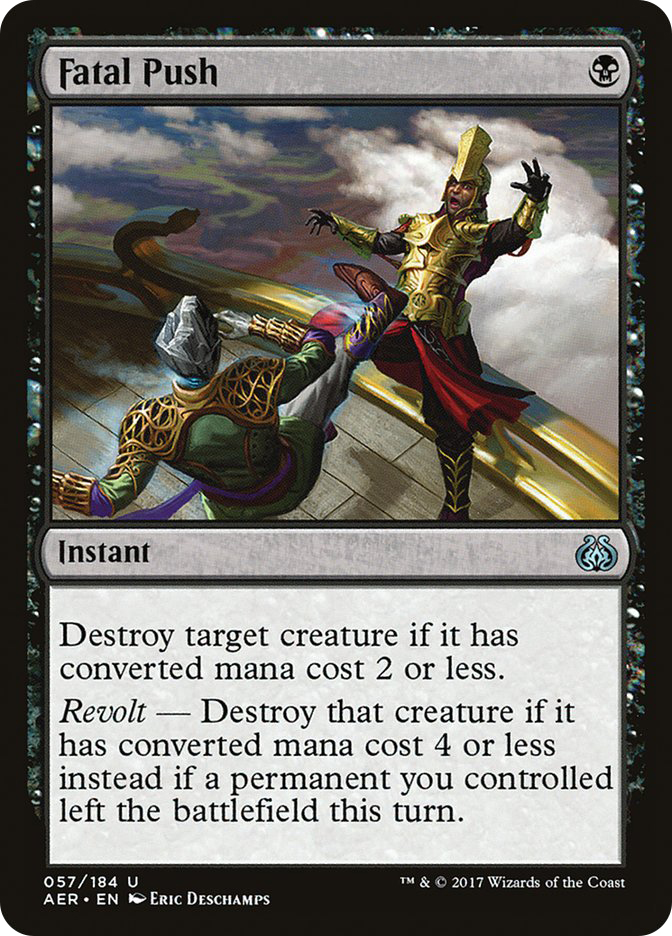Whoever blinks first, loses. Right?
In the Magic world, to “blink” is to act. Whenever you and your opponent are staring at each other, waiting for the other to move, whoever ends up making a play first is the one who blinked. You hear a lot of talk about blinking in the context of the matchup between two do-nothing control decks, where doing anything besides playing a land every turn is a mistake for most of the game, but the concept has applications throughout Magic.
Sometimes, like in control matchups, the blinking contest is symmetrical. You both can’t do the same thing. Sometimes, like in control matchups, the blinking contest is general. The thing you can’t do is anything.
But staredowns can be a lot more specific than that, and they don’t have to be symmetrical. For instance, consider this play pattern that comes up often when playing with Goblin Rabblemaster.
You have Rabblemaster in your hand and would like to start accruing tokens and riding those Goblins to victory. Unfortunately, your opponent has been representing a removal spell, Terminate, for the past several turns. Assuming that Rabblemaster is your most important threat, which it often is, what we have here is a blink contest. We blink and lose if we cast Rabblemaster into their Terminate, and they blink and lose if they use the Terminate on a less important target or if they tap out of it on a given turn.
These are pretty specific things that both players are waiting on doing, and importantly, they are not the same thing. The rules of engagement are different, but the idea is the same: blink and you lose.
Why Blink?
Then why does anyone blink? Not blinking is always an option available to you, and yet players are constantly blinking left and right.
Well, for starters, sometimes you question whether this is an actual blink contest. In the previous Rabblemaster example, what if they don’t actually have the Terminate? In that case, you’d be much better off casting the Rabblemaster as soon as possible and going to town on their life total. You can’t know for sure that they have it until you try, right?
The temptation to blink can also be extremely high. Game-winningly high, even. In the Rabblemaster example, if things work out, you are only a little ahead. Unless, of course, they happen to be at one life. Then the best-case scenario isn’t gaining a little ground; it’s winning the entire game.
And it’s when you start to combine these two factors that you see some serious blinking. Not only is the temptation a chance at winning the game, but they might not even have the card that punishes you for your greed? That’s quite the siren’s call.
It’s not that these players are weak-willed. Magic is a lot of things, but one thing it’s not is a stubborn-off. Indeed, stubbornness is one of the most damaging qualities to have as a Magic player, both in-game and in deckbuilding. You aren’t going to win games by stubbornly not blinking when you should.
You see, sometimes you have to blink. Think of it this way: if both players were to insist on never blinking, one player would end up winning the game. This not-blinking state of affairs is much better for that person than for the other. Indeed, the person who is going to lose by not blinking should probably blink at some point. After all, the penalty for losing a blink contest can never be higher than losing an entire game.
Figuring out if you are the person who should be blinking is a very interesting subject, but not one I’m looking to get into right now. In brief, the idea is that if the status quo is bad for you, you should be thinking about blinking. There’s a lot of literature on the subject of if you should do things or not that’s applicable, like this article by Sam Black. After all, it’s a lot easier to not blink when you have other plays to make. It’s when your choice is between blinking and doing nothing at all when things get tricky.
Once you’ve decided that you are the one who needs to blink, the timing of your capitulation is an important question. That’s what we will look further into today.
The Stakes of Blinking
To understand when you should blink, first you have to get a good handle on the stakes at play in these contests. Just like blink contests can be symmetrical or asymmetrical and general or specific, they can also have different stakes. Sometimes blinking will lose you the game, other times it will just put you a little behind. Take a look at this battlefield state I arrived at during the Magic Online PTQ last Sunday:
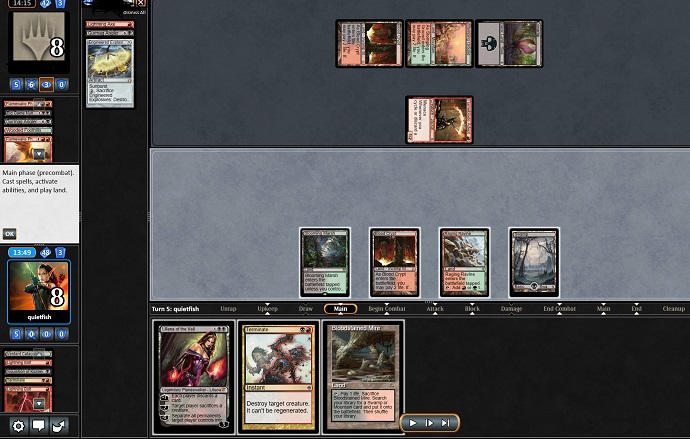
All the information is in front of you: the three cards in our opponent’s hand are the three cards shown in the revealed cards zone, figured out from an Inquisition of Kozilek a turn or two ago and the cards they’ve shown since. The way this game is going to play out, it’s pivotally important that I Terminate the Gurmag Angler in the main phase it comes down in, as I have no realistic way of beating Flamewake Phoenixes. Those are the terms of our blink game: I blink with any play that doesn’t let me Terminate an Angler, while they blink if they cast the Angler into my Terminate.
So I refuse to blink. I play Liliana of the Veil and minus her to deal with the Flameblade Adept, play the Bloodstained Mire, and pass. I was feeling good at this point, as with the cards in their hand they didn’t have anything to do besides Angler, so either they blink or pass, and I’m okay with either. Of course, the top of their deck didn’t cooperate:
They cast Bloodghast and attack Liliana. It might be tempting to Terminate to save the Liliana, but doing so nearly guarantees you lose to the Angler and the Phoenixes. I refuse to blink and let the Liliana die, fetching an Overgrown Tomb in their end step. I draw and cast Dark Confidant, hopeful that this will be the turn they blink. Instead…
A second Bloodghast enters the fray. I’m now at seven, facing down four power in combat. Essentially, the choices are to Terminate one or not, and to block or not. Something needs to be done, as going to three with an active Dark Confidant is unlikely to be a winning line. Again, If I Terminate I will find myself losing on the next turn to the Angler. So I trade one off with the Confidant and fall to five.
I draw and cast Inquisition of Kozilek, taking away their Lightning Axe. That draw seems innocuous, but it actually heavily increased our winning chances, as it paved the way for Raging Ravine to end the game in two attacks if they were to blink. So back we go to their turn.
It finally happens. They blink and go for the Angler to end the game, even delving away the second Bloodghast and leaving them with just two Flamewake Phoenixes in the graveyard. I, of course, Terminate before those Birds get to do anything, take two, and fall to three. I won the blink contest, and actually would win the race between Bloodghast and Raging Ravine. I just had to fade a couple of draw steps and victory would be snatched from the jaws of defeat.
C’est la vie. It was a good try, and refusing to blink for so long gave me a chance to steal a game that was looking to slip away from me.
The takeaway here is that sometimes determining when to blink is easy. Because I knew they had an Angler in hand from a previous discard spell, I knew that the game would end if I blinked. When the penalty is that stark and the situation so defined, it’s easy to decide not to blink. Don’t blink if you can’t.
When you have to blink, you want the stakes to be as low as possible. You want to lose as little as possible in the exchange. How do you manage that?
Blink Now, or Forever Hold Your … Eyes?
Without further ado, I present Jadine’s First Law of Blink Contests:
The longer a blink contest goes on, the bigger the stakes get.
And the corollary:
Blink as soon as possible, or never.
If you blink early in a minor contest, often the consequences are not that dire. If you think back to the Rabblemaster example, how much do you really lose by casting the Rabblemaster right away? They get to line up their removal spell with your best creature before it generates value. That’s not good, but it’s certainly possible to win the game from that spot.
What if you wait a turn and then blink? Instead of casting the Rabblemaster, you pass the turn. When they don’t bite and burn the Terminate or use their mana elsewhere, you sigh and deploy the Rabblemaster on your next turn. It gets Terminated, of course. Is this worse for you than the previous scenario?
Well, to answer that, we first have to back up. The scenario isn’t quite specific enough yet for this to have a concrete answer. Let’s assume that the Rabblemaster player here is the one who needs to blink, who will find themselves falling behind if things continue as they are. Presumably the battlefield is clear, but the matchup is one where the late-game favors the opposition. So then, is the one turn wait on running Rabblemaster into Terminate worse than doing it immediately?
Yes, by a lot. Not only did they get to line up their removal spell with the best possible target, but you wasted an entire turn to no benefit, as you still ended up blinking. That turn that passed is a negative for you. You are in the same spot you would have been last turn, but you are now a whole turn closer to the end-game and your opponent’s eventual win. If you’re going to blink, do it immediately.
But what if it’s the Terminate player who will find themselves falling behind if nothing changes? Let’s say the Rabblemaster player has some pressure on the battlefield already, potentially a Tarmogoyf, and each turn that passes allows them to get in for damage at a rate that is unacceptable to the Terminate player. Everything else is being held constant, that is, it’s still the Rabblemaster player who is blinking on the second turn of the contest. Who’s ahead here?
Well, the Rabblemaster player is still ahead, and this is better for them than if they had blinked last turn. They got that full extra turn of a good status quo under their belt and can feel good about that. The thing is, they could have been further ahead if they continued to refuse to blink. If they had continued to wait, they would have eventually forced the Terminate player into a position where they were forced to blink first. It was good that they waited one turn, but they should have waited more. Don’t blink if you don’t have to.
Another good reason to blink early goes back to the reasons why people blink at all: they might not have it. If you hold the Rabblemaster on Turn 1, and then on Turn 2 cast it, and they drew the Terminate in the turn that went by, you have made just about the worst possible decision. The longer you wait on a play, the more likely they are draw the card that punishes you if they didn’t already have it.
Please note that if you have alternate ways to combat the status quo that aren’t blinking, this is a very different scenario. You can’t let the status quo go on if it’s bad for you, but if you can avoid blinking and fight the status quo at the same time, that’s the dream.
So think about if you’re going to have to blink, and act accordingly. I don’t want to get into all of the high-level strategic stuff about who should be blinking, as that’s way beyond the scope of this article, but I do have one last example that touches on times when you have to blink for tactical reasons.
On the play in current Modern B/G/X mirrors, I very rarely deploy a two-drop on Turn 2. Generally, they will have Fatal Push mana up on that turn, and I consider that interaction to be a miniature blink contest. I do not want to let my Turn 2 get eaten by mana that would otherwise not be used, and then they get to cast a threat while I’m tapped out. I deal with their threat, but they get to cast another. They are in position.
Conversely, if I wait and then they blink by playing a two-drop into my open mana, I now get position. I get to deploy threats into no mana and force them to react. This is good for me, and is the prize at stake in this blink contest.
The exception for me is if I don’t have a third land ready for next turn. If I refuse to blink, they do the same, and I fail to draw a land, all of a sudden the time that’s passing looks very bad for me. This is a tactical reason why the status quo is bad for me, not a strategic one, but it needs to be respected all the same.
Essentially, you should look forward to the next turn and think about if you will feel forced to blink on that turn. If so, you should just go ahead and blink right away.


